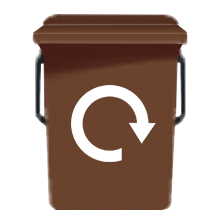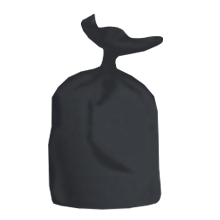Air Quality
Details of Guernsey's 'real time' air quality data can be found on this website.
Nuisances
The Office of Environmental Health and Pollution Regulation (OEHPR) deals with complaints relating to nuisances including noise, smoke, dust and smell, light and flies. The priority of the team is to address environmental pollution which poses a serious and / or imminent risk to the environment or human health. Where there are domestic issues which can be dealt with through discussion and neighbourly behaviour, this is favoured as it is likely to lead to quick and friendly resolutions. Neighbours are encouraged to speak with each other and to find compromises which do not present an environmental risk and which do not cause unreasonable disturbance to each other.
Before reporting issues to the OEHPR, you are encouraged to ensure that;
- the issue poses a significant or imminent risk of harm
- you know the source of the problem and can identify it clearly to the team
- you have taken reasonable steps to address the matter (e.g. spoken with a neighbour in friendly manner)
- you have considered, or taken, external mediation to resolve any neighbourly disputes
- you have contacted the States Veterinary Officer or the GSPCA if you have concerns about the welfare of animals
- you are willing to collect evidence to support your complaint (such as filling in diary sheets for around 2 weeks)
Prescribed Operations
Certain operations which involve the release of pollutants into the environment, including the atmosphere and Guernsey's water resources, are considered to be prescribed operations and will require a licence. Operations likely to fall within this description include paint spraying operations, dry cleaners, new or large-scale petrol dispensing stations, operations with large boilers or furnaces the power station and effluent discharge to sea or any other water body (such as a pond, douit or borehole). If you think that your business may require a licence should contact the OEHPR as a priority. The OEHPR will also be contacting businesses that are likely to require a licence. Application forms are also available in the downloads section.
Other Activities Likely to Present a Threat of Pollution
Other activities that are not Prescribed Operations still need to be properly managed to reduce the likelihood of a threat of pollution. Activities likely to fall within this include discharge of substances into groundwater or surface water, works to a douit, stream or ditch, the storage or application of fertiliser or pesticides and the keeping of livestock. Further details on the application or storage of pesticides is provided below. From November 2022, new legislation was implemented which covers other activities which are likely to present a threat of water pollution and the requirements to assist in complying with the new legislation. Guidance is available in the downloads section for oil tank installations and for farming activities.
The application or storage of pesticides
- The application or storage of pesticides should be conducted in the following ways to avoid the risk of environmental pollution.
- The preparation of pesticide for application and the cleaning or maintenance of pesticide application equipment must be undertaken in a manner which prevents any spillages, run off or washings from entering Guernsey's water resources,
- Pesticide application equipment must be maintained in a good state of repair,
- Pesticide application equipment must not be filled with water taken from any douit, stream, ditch, pond or wetland unless a device preventing back siphoning is fitted to the system, or the water is first placed in an intermediate container from which the equipment is filled,
- Pesticide-treated plants must not be stored or soaked in any douit, stream, ditch, pond or wetland and
- Pesticide, including any used packaging that has been stored in contact with pesticide, must not be stored on an impermeable surface draining to a surface water drainage system.
Bonfire Advice
From 2nd December 2019, new legislation is in force which covers what kind of material you can burn in the open air (a bonfire) and how it must be burnt. This information is intended to give an overview and guidance on the do's and don'ts of burning waste material but the full version of the legislation is available on the Guernsey Legal Resources website.
If you have a licence or an exemption to burn under the waste licensing legislation then this guidance does not apply but you must comply fully with your licence or exemption conditions.
This information mainly provides details on the bonfire legislation but also mentions other controls which may be relevant to burning such as waste licensing.
For information on how to protect wildlife during bonfire/firework season, please visit gov.gg/fireworks.
What can I burn?
- You must not burn waste from your business (commercial waste) other than dry green / garden waste - if you are burning green waste as part of your business, you should contact the OEHPR.
- You must not burn any household waste such as black bag waste, furniture, waste electrical goods etc.
- You can burn dry, green waste (but you could also consider composting or the using the green waste site at Chouet).
What is 'green waste' and where can I burn it?
- The legislation refers to 'dry plant matter' - this means dry, green waste / garden waste such as hedge cuttings, branches, twigs, grass cuttings etc.
- The dry, green waste must only be burned on the land where it grew - this is intended to stop people moving waste around the island and having large bonfires or burning waste from other people's land. If you want to burn waste from other people's land you should contact the OEHPR.
- The green waste must be dry when it is burned as the burning of wet waste causes more smoke - plant material can contain water but the surface of the green waste should not be wet to touch. This also means you should not burn in the rain or in wet conditions.
How can I burn my green waste?
- You can burn dry, green waste (only) as a bonfire.
- You can use a garden burning bin but only for green waste - so no black bag waste or other rubbish can be burned!
- If you burn any other waste in a burning bin, fire pit, chamber or similar device you may require a licence or exemption from the Director of Environmental Health and Pollution Regulation under Waste Licensing legislation or you could be breaking the law.
What other options do I have to get rid of my waste?
- Household, black bag waste and recycling can be disposed of through your regular kerbside collection.
- There are also the household waste recycling (Longue Hougue) the household green waste site (Chouet) and commercial waste collection services and sites.
- Details about the States' run sites and opening times can be found here
Can I have a bonfire for a small-scale event?
- Yes - there is a general exemption for small scale events subject to meeting the following conditions. If you are having a small-scale event (with no more than 20 people attending) such as a camp fire, outdoor party or barbecue or celebrating a specific event (Guy Fawkes night, New Year's Eve or Liberation Day) then it's okay to have a fire as long as you do the following:
- Only burn wood or dry, plant matter (green waste).
- Have the fire supervised by a responsible adult.
- Ensure that the fire is not more than 3m high, 3m wide and 6 cubic meters in total size (for example it could be 2m wide, 2m long and 1.5m high or 1m wide, 3m long and 1m high or any other combination not exceeding 6 cubic meters). To give a comparison, 6 cubic meters is basically the same size as a standard skip.
- Do not burn for more than 24 hours (and this includes relighting the fire).
- Do not cause dark smoke.
- If you are not going to meet all of these conditions then you should contact the OEHPR as the Director of EHPR may issue a written exemption subject to certain requirements being met. Further details on how to apply for an exemption are set out below.
Can I have a bonfire for a large-scale event?
- Yes but you will need to provide details to the Director of EHPR and get a written exemption. You should apply for an exemption as soon as possible in advance but allowing at least ten working days before the event.
- Large-scale events are events attended by more than 20 people such as a camp fire, outdoor party or barbecue or events to celebrate specific designated occasions (i.e. Guy Fawkes night, New Year's Eve and Liberation Day). Other occasions may be designated by the Director of EHPR. The event must be held within 48 hours (2 days) before or after the date of the event being celebrated if celebrating a designated occasion.
How do I apply for a written exemption?
- In order to get a written exemption for a bonfire at a large-scale event or small-scale event where you do not meet all the conditions of the general exemption, you will need to provide the Director of EHPR with the following details:
- The date, time and location of the event
- Who is responsible for organising the event
- How the fire will be supervised
- The amount and type of waste being burned
- The type of fuel to be used
- The number of people likely to attend the event
- How long the fire will last
- What measures will be used to prevent dark smoke and other significant problems
- For small scale events, which conditions of the general exemption are not met
- The Director of EHPR is not obliged to provide an exemption and may add conditions to it to reduce the risk of pollution. The intention is, however, to control the risk of pollution and stop events being used as a way to dispose of waste and this is not meant to stop people celebrating and having reasonable fires during these times.
What happens if I break the law?
- There are powers within the legislation to serve legal notices and to refer offences for prosecutions but these powers are not taken lightly. Legal action is generally only taken where there have been significant breaches and / or significant pollution risk or incidences.
- It is always the intention of the OEHPR to advise and work with the public and businesses and where people will make changes to comply with legislation it is unlikely that it will take further action.
- Enforcement powers are used having considered a number of factors including the (actual or possible) impact of the actions, whether advice has previously been provided and the frequency and duration of the breaches. It is hoped that, as with other enforcement powers of the Director of EHPR, that this will not need to be regularly used although it is important that they exist so significant, serious and / or repeated offences can be dealt with.
Extension of the Montreal Protocol to Guernsey and Alderney
The amendments to the Montreal Protocol on Substances that Deplete the Ozone Layer have been ratified for and extended to Guernsey and Alderney. The Kigali Amendment has not yet been ratified for and extended to Guernsey and Alderney and work is ongoing to secure the extension of that Amendment. Should you require further information on import or export of Ozone Depleting Substances please contact the OEHPR.













